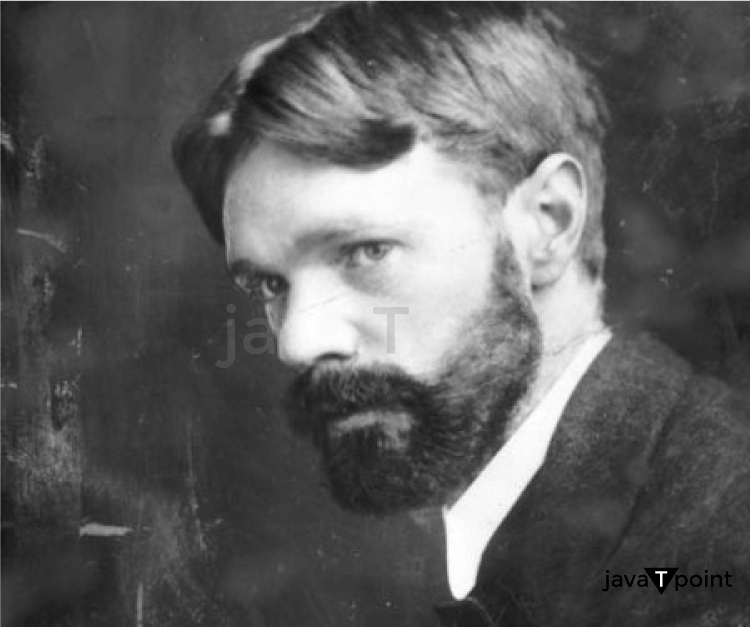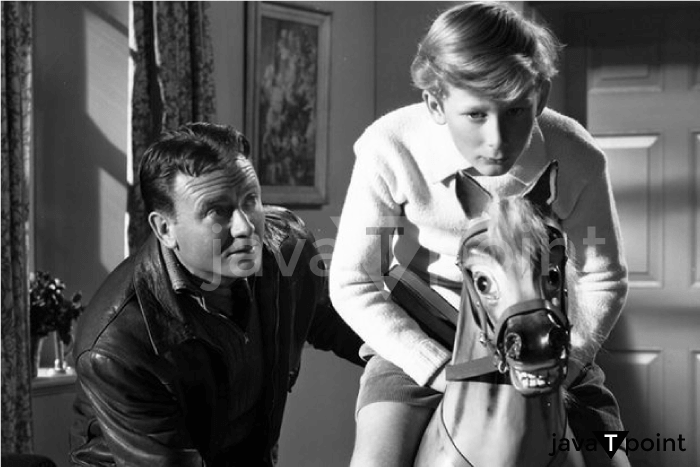The Rocking Horse Winner SummaryPeople's battle with ignorance are brought out in life when they are unaware of how they affect others. Every aspect of their lives might be affected by this misinformation. In D. H. In Lawrence's short tale "The Rocking-Horse Winner," a little child called Paul has a hard existence because his mother, Hester, would never accept anything that isn't perfect. He decides to carry the weight on his own shoulders and makes an effort to get back all his mother so dearly wants. Even though Paul is still a young man, he assumes a significant amount of responsibility for easing his family's financial strain. So let's explores this short tale in detail About the Author
On September 11, 1885, David H. Lawrence was born. From 1898 until 1901, he received scholarship money to attend Nottingham High School. Following five years. Lawrence the attended Nottingham University College for his education. PlotPaul, a little kid, is informed by his mother that his family is unfortunate. Because her husband doesn't generate enough money, Hester, his mother, only has this perspective. Paul then places a Derby wager to satisfy his mother's insatiable need for money. He sacrifices his life in an effort to make his mother "happy," but the quantity is never sufficient. Summary
Paul is a significant figure in the novel, and their friendship facilitates the development of the storyline. In contrast to the typical mother-son bond, Paul and his mother's relationship is highly unique. As a young boy, Paul believes that his mother just lacks the good fortune to be happy. He believed that by giving his family and himself economic pleasure, he could achieve happiness for himself and his family. His challenging search for fulfillment was eventually made possible by this. Paul's mother, Hester, is unaware of the extent to which she has shaped her son's life. She doesn't recognize that her way of thinking has a significant impact on her child's quality of life, despite the fact that she has poor parenting practices and lacks a self-filter. She has a unique perspective on life and thinks that prosperity depends on chance, which is what makes you rich. Paul often hears others in the home muttering, "There must be more money," which is how this decision was made. Paul was witness to such behavior, and between the whispers and his mother, he ended up being very corrupt. Basset, the family gardener, and Paul often discuss horse racing in their exchanges. Basset has extensive experience and a passion for making wagers on horses. When Paul discovers he can predict the outcome of the forthcoming derby, Basset and Paul become close friends. Taking advantage of this, Paul asks Basset for assistance so that he may begin winning money. When Uncle Oscar hears about the wagering, he expresses interest in joining the partnership, which is fantastic since Uncle Oscar is considered fortunate by Paul. This trio of characters' interactions enables Paul to build up a modest wealth. There were effects that could not have been anticipated, even though Basset and Uncle Oscar never pressured him to choose who would win. Paul exerted a great deal of effort while rocking the horse, spending up to hours doing so. Remembering that he did this to acquire money while soothing his mother. Hester discovers Paul raging on his rocking horse and tumbling off in a heap, sadly, just before a huge race. After shouting "Malabar!" for the winning horse, he passes out. For the sake of his dysfunctional mother's eternal life, Paul unintentionally ended his own life. This short story's setting seemed somewhat dull. For the most part, the action took place in the family's English home. Uncle Oscar accompanied Paul to horse racing, where there was a brief section. Because it mostly focused on what Paul was doing, the setting was significant to his character. For instance, the plot focuses on him since he is the one who wants to support the family and is on a trip. The interaction between the characters and the structure of the story is a crucial aspect of "The Rocking-Horse Winner." In order to allow Lawrence to follow Paul's thoughts and deeds from a third-person point of view, the story is organized in chronological order of events like that. Paul understands that by participating in the horse races, he may raise money for his struggling family. Thus, in preparation for the upcoming grand race, he begins riding his rocking horse. To highlight the struggle and resolve in the novel, author D.H. Lawrence builds character. Due to the family's financial situation, which prevents them from affording all they want, Paul's mother causes conflict for the main character. All the turmoil that arises in the novel itself is driven by her quest for more financial prosperity. The person employing his unique ability to forecast is Paul, who is attempting to find a solution to this problem. A closed plot may be said to be the whole tale. Paul ultimately passes away at the conclusion, giving the drama a conclusive resolution as he sings "Malabar" as his last note. The way the narrative was resolved personally pleased me. It's good to not be perplexed as to how the narrative could conclude in such a dramatic fashion. But curious to know how the family will manage without Paul and the substantial sum of money he left behind. People might become quite obsessed with having wealth. Hester is an excellent illustration of how ignorance can wreck someone's life and even have a significant negative impact on others around them. Paul was only trying to support his mother and the family by acting in a way that he believed to be ethically right. Without their knowledge, he performed what he was doing, but he never received praise. This undervalued hero had a key role in shaping the narrative's storyline and the characters' personalities. Theme1. NeglectPaul doesn't get the affection he needs to grow up to be a typical, emotionally healthy kid because Hester is too preoccupied with financial things to do so. 2. ObsessionPaul "inherits" his mother's obsessive lust for material possessions, a luxurious lifestyle, and money. But he wants to demonstrate that he has the good fortune that his father lacks by raising money for his mother rather than for himself. His obsession with earning more develops when he realizes that the 5,000 pounds he puts aside for her is insufficient to accomplish his objectives. 3. OpportunismOscar Creswell acknowledges that Paul's wagering makes him nervous. He approaches Paul for advice on picking winning horses, but instead of taking action to stop Paul, he encourages him. Oscar rushes out and bets on the horse while Paul, who is in the latter stages of dying, is whispering the name of his Derby choice. 4. DeceitThe narrator claims Hester doesn't care about her kids in the first sentence of the narrative. However, some claim that she is a decent mother while seeming to love them on the outside. She is really proud of her kids. Technique and PersonalityThe narrative opens in the conventional and seemingly straightforward language of a fairy tale: "There was a woman who was beautiful and had every advantage at first, but she had no luck." This phrasing emphasizes how improper it is to live, as Hester does, under the assumption that success and happiness, like in fairy tales, will come to you out of the blue and are not anything you can manage. The story's supernatural components enhance its feeling of realism rather than provide a means of escape. Paul's frenzied rocking horse riding perfectly exemplifies the pointlessness of the materialistic search and its lack of a clear end goal. The idea that the home is saying "There must be more money" strikes me less as a paranormal or magical aspect and more as a skillfully maintained metaphor for the unsaid signals that influence and often take over a family's existence. All in all, the narrative is a masterful examination of the persistent use of symbols to boldly and economically convey the fatal repercussions of replacing love with money. SymbolsThe Rocking Horse: The youngster in the tale inquires of the rocking horse as to who won the Derby races. He always receives the winner's name from the toy. SuspenseThere is a whisper in the home, which the narrative repeatedly highlights. It's said that the mother's begging for money, which is heard as a whisper, leads her kid into death. DictionIt's quite easy to choose the right words. The words are vivid, but not very difficult. It takes many readings to fully comprehend the plot, however, due to the way the narrative is structured. Conclusion"The Rocking-Horse Winner" by D.H. Lawrence is a haunting tale that exposes the destructive nature of materialism and the desperate longing for love. Lawrence expertly weaves a story that highlights the emptiness of adult life and the innocence of children. The novel emphasizes the importance of love and emotional health by using Paul's sad journey as a warning against the relentless chase of fortune. It serves as a sobering reminder that true riches are found in real friendships and emotional satisfaction rather than in material stuff. The reader is inspired to consider their priorities and seek real pleasure by Lawrence's concise explanationof these themes.
Next TopicThe Shadow Lines Summary
|
 For Videos Join Our Youtube Channel: Join Now
For Videos Join Our Youtube Channel: Join Now
Feedback
- Send your Feedback to [email protected]
Help Others, Please Share









